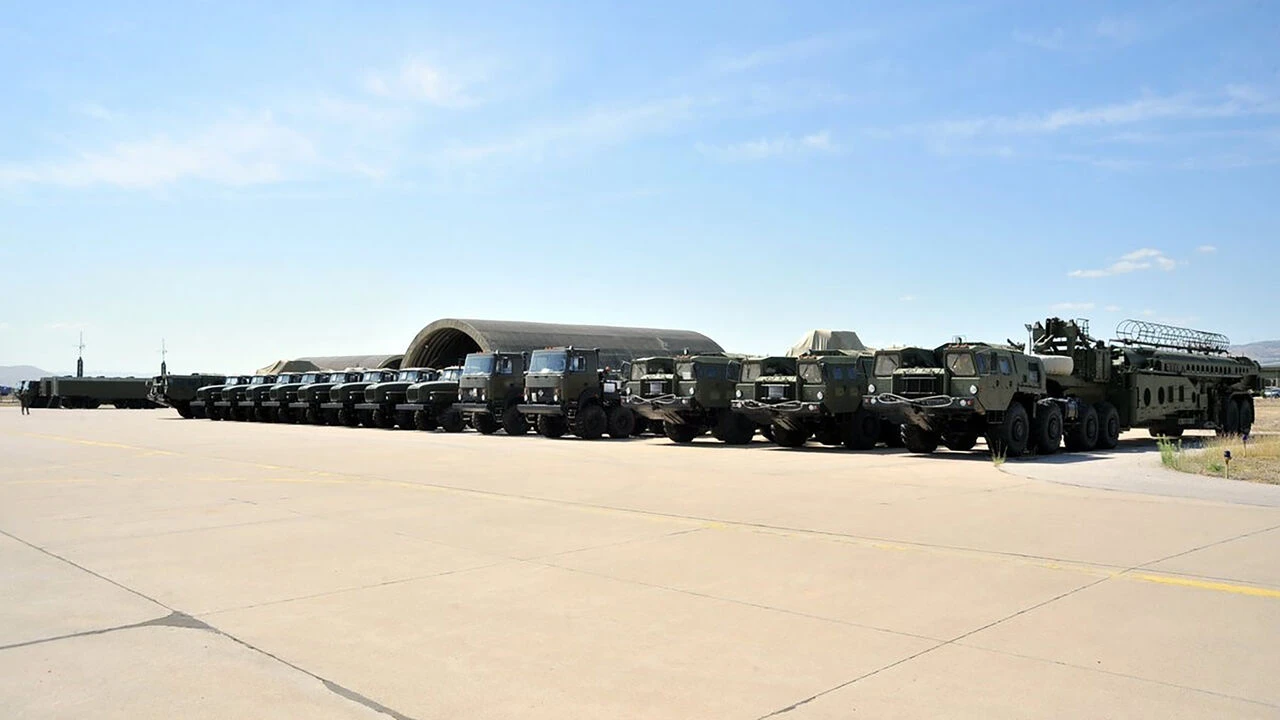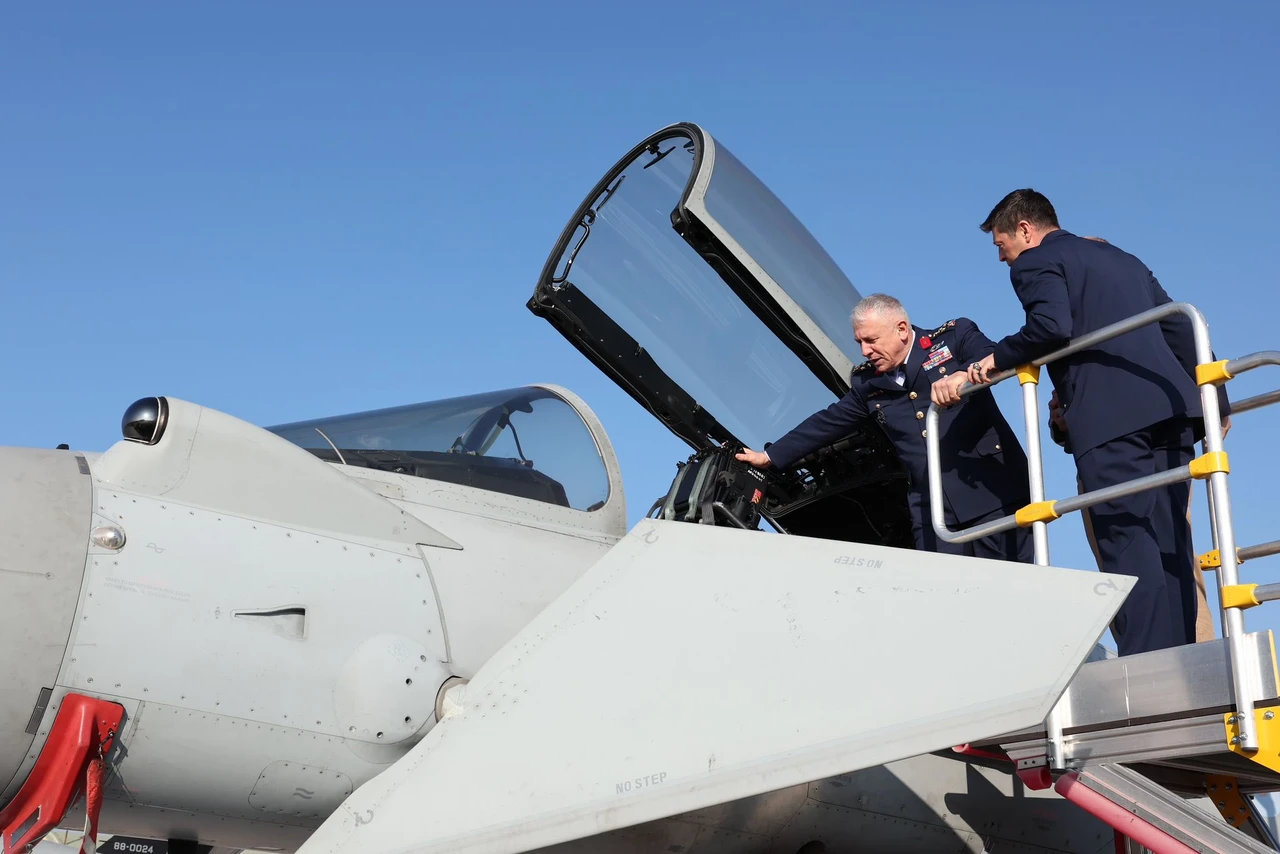‘I’ll destroy the Turkish economy:’ Trump’s diplomacy of escalation
 U.S. President Donald Trump dances on stage after speaking at a campaign rally at PPG Paints Arena in Pittsburgh, Pennsylvania on November 4, 2024. (AFP Photo)
U.S. President Donald Trump dances on stage after speaking at a campaign rally at PPG Paints Arena in Pittsburgh, Pennsylvania on November 4, 2024. (AFP Photo)
Amidst the US elections, memories resurface of Donald Trump’s threat to “destroy the Turkish economy” during his first presidential term.
Trump, Kamala Harris’ Republican rival, remains infamous for his unprecedented actions in international relations, particularly in escalating tensions between the United States and Türkiye.
His hardline approach to Ankara, marked by economic sanctions and aggressive rhetoric, aimed to destabilize the Turkish lira, leading to significant economic damage in the aftermath of the failed coup attempt in 2016. He was repeatedly criticized for his threats against Türkiye, even explicitly stating that he would “totally destroy and obliterate the economy of Türkiye.”
During his presidency, the Turkish lira depreciated by more than 165%, amid serious disputes that almost led to a severing of ties between the nations.
Borsa Istanbul was also negatively impacted, suffering sudden losses despite periods of unstable growth.
The Brunson affair
Andrew Brunson, an evangelical pastor of a Protestant church, was arrested on Oct. 7, 2016, in connection with the coup attempt. He was accused of aiding the coup, spying for the US intelligence, and having links to the FETO and PKK/YPG terrorist organizations.
During Brunson’s trial, Trump tweeted on April 18, 2018, claiming the pastor was “being persecuted for no reason.”
On July 19, Trump escalated the situation, calling the trial a “total disgrace” and urging President Recep Tayyip Erdogan to release Brunson. On July 26, Trump announced that the U.S. would impose economic sanctions on Türkiye.
On Aug. 1, the U.S. Department of the Treasury, acting on Trump’s directive, froze the assets of then-Justice Minister Abdulhamit Gul and Interior Minister Suleyman Soylu.
Later, on Aug. 10, Trump declared a doubling of tariffs on aluminum and steel imported from Türkiye, to 20% and 50%, respectively. By Aug. 17, he implied that the U.S. might cut investments in Türkiye if Brunson was not released.
Turkey has taken advantage of the United States for many years. They are now holding our wonderful Christian Pastor, who I must now ask to represent our Country as a great patriot hostage. We will pay nothing for the release of an innocent man, but we are cutting back on Turkey!
— Donald J. Trump (@realDonaldTrump) August 16, 2018
These sanctions severely affected the Turkish lira, causing a devaluation of approximately 38% between July 19 and Aug. 13. The currency started to recover slightly after Brunson was released on Oct. 12, despite being found guilty of the charges, due to time served in detention.
Trump’s cold ‘thank you’ and subsequent actions
Trump thanked President Erdogan and Turkish authorities for Brunson’s release, clarifying that no deal had been made regarding the case, though the fate of the sanctions remained uncertain.
Due to Türkiye’s firm stance on counter-terrorism, Washington agreed to implement a safe zone in Northern Syria to push terrorist groups at least five kilometers from the Turkish border. After the plan failed, President Erdogan announced Operation Peace Spring on October 6 to eliminate terrorist groups east of the Euphrates.
Initially opposed to a Turkish-led operation in the area, Trump appeared to change his stance on Oct. 7, announcing the withdrawal of U.S. troops. He declared, “It is time for us to get out of these ridiculous endless wars,” defending his decision against critics who accused him of abandoning the PKK/YPG. Amid backlash, Trump again resorted to threats, stating, “I will totally destroy and obliterate the economy of Turkey (I’ve done it before!)” if Türkiye acted inappropriately.
On Oct. 9, Trump sent a letter to President Erdogan that was widely considered bizarre for its immodest tone, even telling Erdogan, “Do not be a fool.” The letter intensified tensions, with both the American public and officials criticizing Trump’s approach.
These crises represent some of the most significant tensions in U.S.-Türkiye relations in recent decades, despite subsequent normalization efforts. The events marked a significant depreciation of the Turkish lira, highlighting the economic consequences of diplomatic conflicts.



